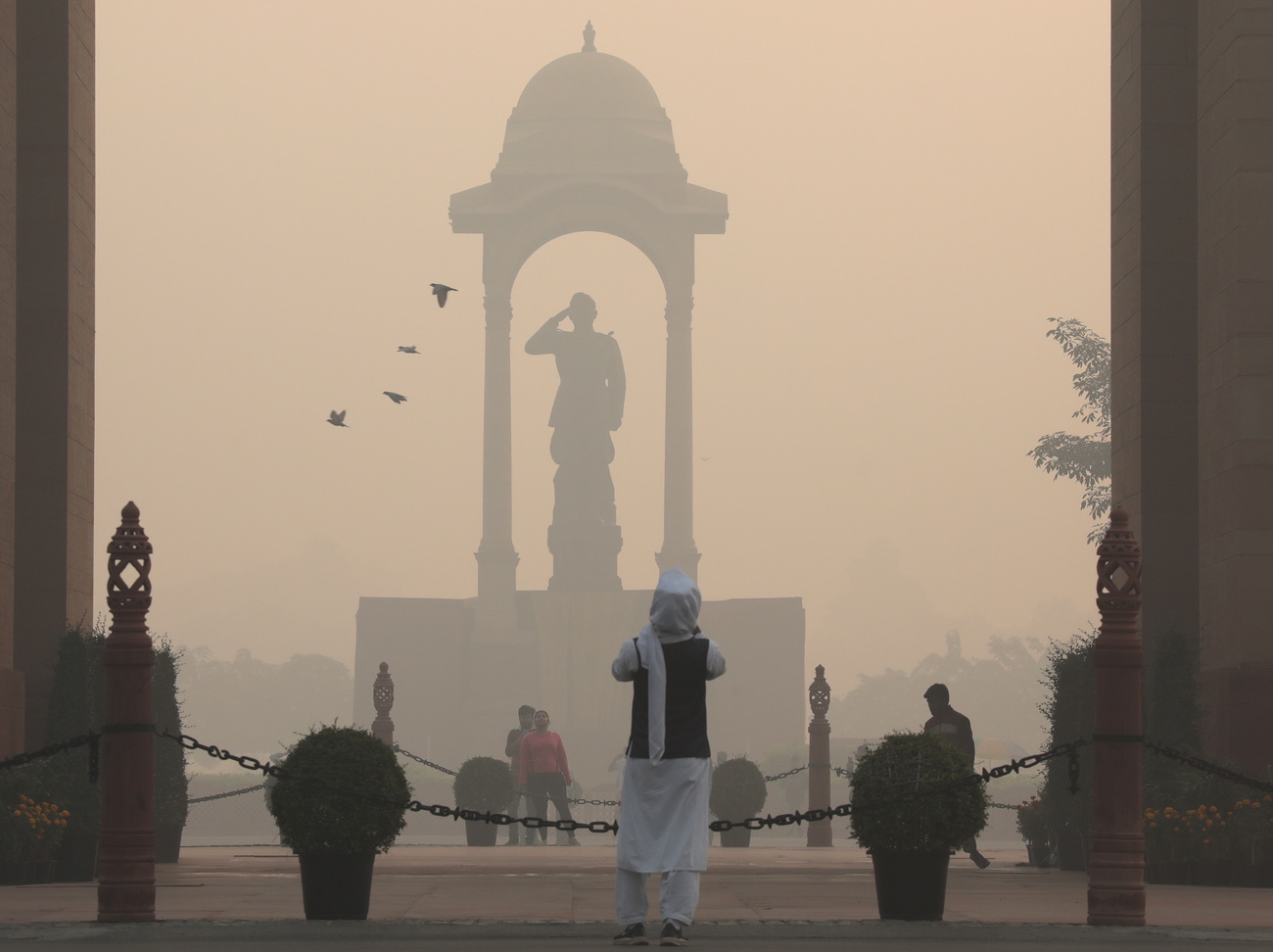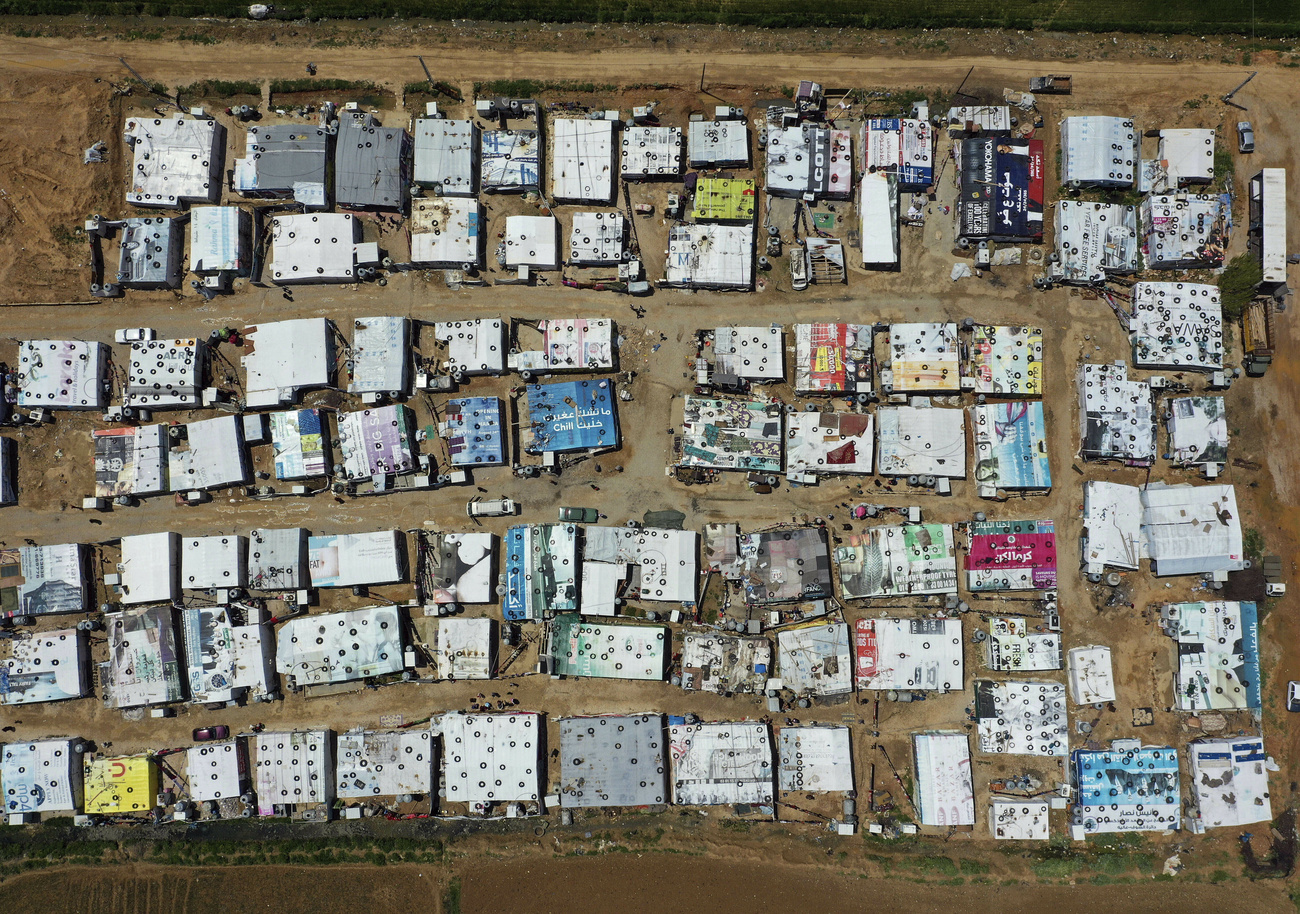
Swiss and Indian researchers solve mystery of New Delhi night smog

A team of Swiss and Indian researchers say they have found the reason why smog forms at night in the Indian capital New Delhi, contrary to all the rules of atmospheric chemistry.
The trigger is the fumes from wood fires used by inhabitants for cooking and heating, according to a press releaseExternal link on Monday from Switzerland’s Paul Scherrer Institute (PSI). In the absence of strict regulations, plastics and other waste materials are also burned, releasing a gaseous mixture with countless chemical compounds, including cresol, a toxic aromatic compound. As night falls, the temperature in New Delhi drops rapidly. Some of these gaseous molecules then condense and within a few hours turn into fine particles that form a greyish vapour.
“The chemical processes that take place in the air at night are unique to the Indian capital and have not been observed anywhere else in the world,” says Imad El-Haddad, an atmospheric chemist at PSI and one of the study authors.
The findings, published in the journal Nature Geoscience, are the result of joint research by PSI and Indian scientists, including members of the Indian Institute of Technology Kanpur.
New Delhi is one of the most polluted citiesExternal link in the world in terms of air quality. The fine particle content in winter can exceed 500 micrograms per cubic metre, compared with 70 in Beijing and 10 in Zurich, according to PSI.

In compliance with the JTI standards
More: SWI swissinfo.ch certified by the Journalism Trust Initiative































You can find an overview of ongoing debates with our journalists here . Please join us!
If you want to start a conversation about a topic raised in this article or want to report factual errors, email us at english@swissinfo.ch.